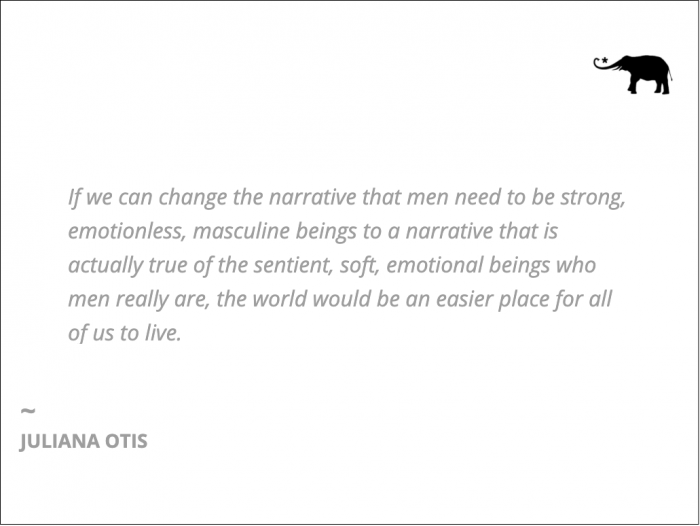View this post on Instagram
The side door of the helicopter was wide-open.
Water trickled from my eyes from the freezing, dry air. The child I was babysitting had a massive grin on his face as he looked at the ground below us.
Suddenly, the helicopter swerved to dodge a bird and little Zachary fell headfirst out the door. I yelped and quickly grabbed him by his tiny ankles. He looked up at me with nothing but fear in his big, blue, watery eyes.
His life was in my hands.
I struggled to pull him up. It took everything out of me.
I used my last bit of strength and finally hoisted him into my arms. I held him so tightly I thought he might break. I was so afraid that if I let go, he would fall again. I felt an innate responsibility that this wounded child needed me.
I sobbed and I squeezed him until I woke up.
My whole body ached as I laid in my sheets and stared at the ceiling in relief.
Holy f*ck. That sucked.
I laid for a moment until I brushed off the feeling and said thank you to the air as if the feeling of needing to be a child’s savior was only a part of my dream.
That same day, I was eating dinner with a dear friend when our laughter quickly turned to tears rolling down our cheeks.
It was a sudden shift. I knew she was sad, but I hadn’t felt the depth of her aching until that moment. Her silky, perfectly curled orange hair rested right upon her collar bone as she pursed her lips and tightly squeezed the water out of her eyes like a lemon.
I swear I had never seen her look more beautiful than she did at that moment.
My heart pulsed in pain from her suffering, but her vulnerable, open heart exposed a magnetic side of her I had never felt before. Her sovereign divinity shone through her as she had the painful realization that her partner was holding her down like the weighted blanket she uses for her anxiety.
I scooted my body closer to hers and she grabbed the sides of my shoulders as our bodies pressed together like two sheets of velcro. I let her quiet sobs fall onto my shoulder until I pulled away, wiped the wetness off my body, and smiled at the opportunity before her.
Her massive, kind heart couldn’t bear the thought of her love not having the support she thought she needed to give him. She felt a lingering responsibility that he was hers to care for, and if she left, he would have no one to save him from his suffering.
She was afraid that if she let go, he would fall again.
And then it clicked. I was immediately brought back to my dream. I instantly realized that the dread I felt from bearing the weight of responsibility of needing to save a wounded child was not only a dream—it was my life.
And it was my friend’s life too.
She expressed to me that all her life, she’s gravitated toward men who need saving. I placed my hand on my heart, I closed my eyes, and I felt her story as if it was my own because it was.
We are both natural caregivers. We both love to love and nurture and watch others grow (which is probably the reason why we both have so many house plants).
But it’s weighing us down.
And to be honest, we’re both sick and tired of holding the burden of needing to be a therapist to men who aren’t receiving the help they need.
How many other people are dealing with this unnecessary weight?
We are not our partner’s parents, nor do we have the space to be our partner’s parents.
And I hate to make this so heteronormative and binary, but I know too many women who are raising their boyfriends as if they were their child.
It is not our job to teach our boyfriends how to feel.
It is not our job to teach our boyfriends how to communicate.
It is not our job to teach our boyfriends how to be healthy, functioning humans in society.
And please, don’t get me wrong, I love men. I see so many beautifully divine, mindful men working on themselves and being badass parts of society, but the problem always reverts back to society and the way these boys are being taught from a young age.
Young boys are being taught that they need to be strong.
They are being taught to “man up” and to “grow some balls” as soon as they show any sign of sadness (especially from an emotional event).
And as a result, boys are suppressing their emotions from an extremely young age. These poor, hurt children become trapped inside adult bodies who don’t feel safe to come out.
These boys become hardened men with a soft child on the inside begging to be released.
But these men still mustn’t show any signs of weakness. And therapy is for the weak, right? (Wrong. But that’s what many people believe.)
So, where do they go? They find a partner who finally makes them feel safe. They find a partner (like me and my friend) where they feel unconditionally loved and supported, and that’s when the child creeps out.
We begin to grip onto this wounded child’s tiny ankles in order to save them from their death. We pull them in, we hold them tightly, and fear if we let go, they will have no one to protect their softness from this hard world.
But as a result, the dread of needing to perpetually support and save these men becomes too heavy and the magic can begin to drain out of us as we pour it all into our partners.
So, how do we stop this from happening?
First, we need to learn that it is safe to let our partners go. We need to see clearly that letting go of our partners can be a huge blessing for them because it gives them the space to finally learn how to love and support themselves.
But I also want to note that we don’t have to physically let our partners go in order for them to heal—we just need to give them the space to heal on their own, outside of the partnership. And I recognize that this is not easy (especially for women like me and my friend who genuinely want to save these men).
Second, we must change the way we are raising our children and teaching our boys to be men. Can we please just let them be boys?
We also need to change the narrative that having a therapist means we are broken. And we need to change the narrative that crying means we are weak or “too feminine.”
But most importantly, we need to change the idea of what it means to be a man.
If we can change the narrative that men need to be strong, emotionless, masculine beings to a narrative that is actually true of the sentient, soft, emotional beings who men really are, the world would be an easier place for all of us to live.
We would finally be able to have loving, lighter relationships that didn’t involve the need to save our partners from falling out of a helicopter door.
And we would all eventually have the space to save ourselves (with the help of a therapist or two).
~









Read 0 comments and reply